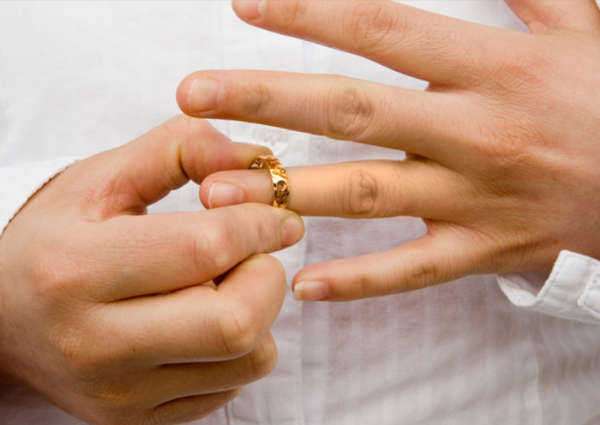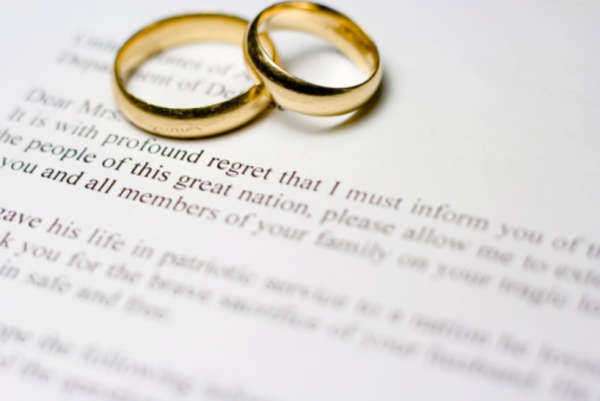
Annulment of Marriage in North Dakota – Ending a Marriage that Never Existed
Marriage is deemed to be a lifelong commitment that two people make to one another. However, not all marriages last forever, and some may be dissolved by way of annulment. An annulment is a legal process that declares a marriage invalid, treating it as if it never happened. In North Dakota, an annulment of marriage is a court-sanctioned termination of a marriage that was never legally valid because of specific factors that existed at the time the couple got married. In this article, we will examine the legal basis for annulment in North Dakota, discuss the procedure for filing an annulment action, and explore what happens after an annulment has been granted.
Grounds for Annulment in North Dakota
An annulment is a legal proceeding that cancels a marriage and ends all legal obligations between the parties, similar to a divorce. However, unlike a divorce, an annulment declares that the marriage never existed. North Dakota law provides specific grounds on which a person can seek an annulment, which include:
1. Fraud or Duress. If one party in a marriage is under duress or has been fraudulently induced into the marriage, the other party can seek an annulment. Fraud occurs when one spouse has been deceived into marrying the other person. Duress occurs where there is force, threats, or coercion involved in getting someone to marry.
2. Consanguinity. A marriage between close relatives is illegal. In North Dakota, people cannot marry their first cousins or aunts/uncles. If, for example, a person marries their aunt, this is considered consanguinity, and the marriage is not legal.
3. Bigamy. A marriage in which one spouse is already married to someone else is void from the outset. If it is discovered that one spouse already had an existing marriage when they got married, the second marriage can be annulled by the second spouse.
4. Incapacity. If one or both of the parties to the marriage are unable to understand the nature of their actions during the wedding ceremony, the marriage is voidable. For example, if at the time of marriage, one spouse is unaware of what is happening or is mentally unable to consent, the marriage is invalid.
5. Lack of Age. In North Dakota, a person must be eighteen years old to get married without parental consent. If someone marries without the required consent of their parents, the marriage may be annulled.
Procedure for Filing an Annulment Action in North Dakota
One person can file for an annulment, or both parties can agree to an annulment. However, the petitioner must have lived in North Dakota for at least six months before they can file for an annulment in the state. There are specific steps that a person must follow when filing for an annulment in North Dakota, including:
1. Completing the appropriate forms: To file for an annulment, the petitioner must file a complaint for annulment with the court. The complaint must include detailed information about the grounds for the annulment. The petitioner can get the appropriate forms for filing from the district court in their county.
2. Serving the Defendant: Once the complaint is filed, the defendant (other spouse) must be served with the complaint and other necessary documents. The process server or law enforcement officer will give a of the complaint and other papers to the defendant.
3. Waiting for the Response: Once the defendant has been served, they have twenty days to file an answer to the annulment complaint. If they do not respond, the petitioner can file a motion for default judgment.
4. Attending a Court Hearing: If the defendant responds to the complaint, there will be a court hearing. At the hearing, the judge will listen to both parties’ arguments and render a decision. The parties may also try to reach an agreement before the court hearing.
What happens after an Annulment has been Granted?
An annulment in North Dakota means that the marriage was never valid. After an annulment has been granted, parties are treated as if they were never married. The court may also make orders for property division, spousal support, and child custody, depending on the circumstances of the case. Annulment proceedings are non-adversarial and, unlike divorce, may not involve a division of marital property, which can make annulment proceedings quicker and less complicated.
Impact of Annulment on Children
When a couple is granted an annulment, it does not impact the legitimacy of their children. Even if the marriage was never valid, children born to the parties are still legitimate children and have the same rights as those born during a valid marriage. However, because the marriage was not legally valid, the court must decide about parenting time, legal custody, and child support in a separate proceeding.
Annulment versus divorce
An annulment differs from a divorce in that a divorce dissolves a legally valid marriage, while an annulment declares that the marriage was never valid. Annulment is a rare occurrence because the legal requirements are strict and challenging to prove. Moreover, while both annulment and divorce can be obtained for a legal separation, annulment requires a legal proceeding to prove the grounds for annulment.
Conclusion
In conclusion, marriage is a legal agreement that requires the consent of both parties to be valid. However, sometimes marriages may not be legally valid because of various reasons. In North Dakota, annulments are available for marriages that are not legally valid. Grounds for annulment include fraud, duress, bigamy, consanguinity, incapacity, and lack of age. An annulment of marriage is a court-sanctioned termination of a marriage that was never legally valid because of specific factors that existed at the time the couple got married. Once an annulment is granted, the parties are treated as if they were never married. If children were born during the marriage considered for annulment purposes, they will still be considered legitimate. Annulment differs from a divorce in that a divorce dissolves a legally valid marriage while an annulment declares that the marriage was never valid. Overall, annulment is a unique legal proceeding that allows a person to legally end a marriage that was never valid.
A Brief Guide to Obtaining an Annulment of Marriage in North Dakota
People who do not want to obtain a divorce for religious or other reasons but wish to separate from their spouse have several options. It is difficult but not impossible to obtain annulments of marriage in North Dakota. There are seven conditions under which you may be able to do so. The grounds for annulment of marriage in North Dakota are:
• One or both spouses was under the age of consent at the time of marriage. If either person was under the age of 16 at the time of the ceremony, the relationship is invalid and annulments of marriage in North Dakota will be granted.
• If it discovered that one or both spouses was still married to another person at the time of their marriage to another person, this is defined as bigamy. Should this be the case, this is grounds for an annulment of marriage in North Dakota.
• If one or both spouses was not mentally fit to consent to a marriage, it was invalid. However, note that if that they later return to sound mental health at a later date and voluntarily continue living with their spouse, this may disqualify you for applying for annulments of marriage in North Dakota.
• Should you discover that you married someone who fraudulently misrepresented themselves, the relationship is invalid. You may apply for an annulment of marriage in North Dakota.
• If either spouse was coerced into marriage through the threat of physical harm, this invalidates the relationship. In such cases, they may file for annulments of marriage in North Dakota.
• If either spouse was physically incapable of fulfilling the obligations of marriage, the relationship is invalid. In such cases, an annulment of marriage in North Dakota may be applied for.
• Incestuous marriages are not valid. Incest between illegitimate children is grounds for annulments of marriage in North Dakota, along with relationship between acknowledged relatives.
In some cases, there are statutes of limitations for when such actions must commence. People who are seeking an annulment of marriage in North Dakota on grounds of their spouse’s physical incapability or physical coercion must do so within four years of the ceremony. If the marriage was performed involving an underage person, their parents may file this motion at any time while their child is still underage. Once a person has reached the age of consent, they have four years to file petition for annulments of marriage in North Dakota. People who discover they married someone who fraudulently misrepresented themselves have four years from the date of their discovery to take legal action.
Other grounds for an annulment of marriage in North Dakota have no statute of limitations. In cases of bigamy, mental illness and incest, this kind of legal action can be initiated at any time. You should be aware that annulments of marriage in North Dakota granted by the Catholic Church do not count in the eyes of the law.




















